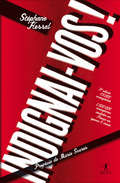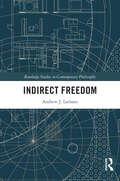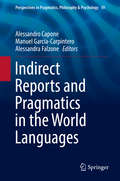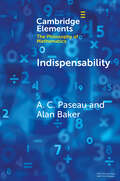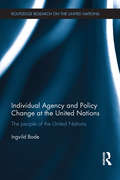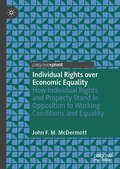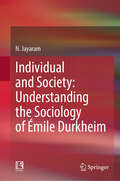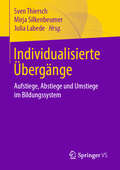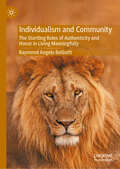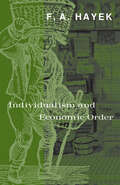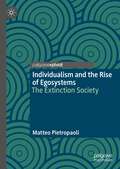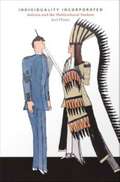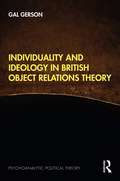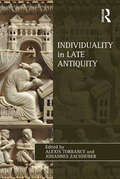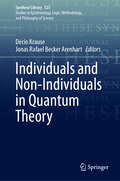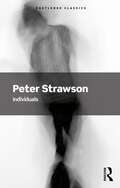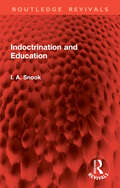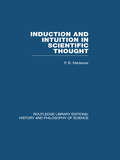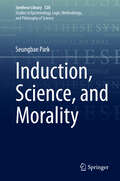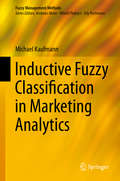- Table View
- List View
Indignai-vos
by Stéphane Hessel1.500.000 exemplares vendidos em França em apenas 5 meses. «Um pequeno grande livro, com ideias inovadoras e críticas certeiras»Mário Soares «A minha longa vida deu me uma série de motivos para me indignar.» Quem o escreve é Stéphane Hessel, herói da Resistência francesa, sobrevivente dos campos de concentração nazis e um dos redactores da Declaração Universal dos Direitos Humanos. É com a autoridade moral de um resistente inconformado e de um lutador visionário que Stéphane Hessel nos alerta, neste breve manifesto, para o facto de existirem hoje tantos e tão sérios motivos para a indignação como no tempo em que o nacional-socialismo ameaçava o mundo livre. Se procurarmos, certamente encontraremos razões para a indignação: o fosso crescente entre muito pobres e muito ricos, o estado do planeta, o desrespeito pelos imigrantes e pelos direitos humanos, a ditadura intolerável dos mercados financeiros, a injustiça social, entre tantos outros. Aceitemos o desafio de Stéphane Hessel, procurando neste livro e no mundo que nos rodeia os motivos para a insurreição pacífica, pois «cabe-nos a todos em conjunto zelar para que a nossa sociedade se mantenha uma sociedade da qual nos orgulhemos».
Indikatoren in Entscheidungsprozessen: Stärken und strukturelle Schwächen
by Alfred Nordmann Oliver Schlaudt Julia MörtelIndikatoren sind in Prozessen des Monitorings in allen gesellschaftlich relevanten Bereichen sowie in Prozessen der wirtschaftlichen und politischen Entscheidungsfindung von der lokalen Ebene bis zur internationalen Governance unverzichtbar geworden. Überall in der öffentlichen und medialen Kommunikation begegnen sie uns und rechtfertigen die Wahl zwischen unterschiedlichen Optionen. Doch was zeigen uns diese Indikatoren eigentlich genau an, worin beruht ihre Relevanz, was sind ihre Stärken, was aber auch ihre prinzipiellen Grenzen? Können sie die Komplexität einzelner Sachverhalte wirklich auf das Relevante reduzieren – oder verkomplizieren sie Probleme noch weiter? Stellen sie unsere Entscheidungen auf sichere Füße – oder wiegen sie uns lediglich in der Illusion von Objektivität?Das Buch leuchtet in kurzen Fallstudien die jeweiligen Grundlagen der Erstellung von Indikatoren, aber auch ihrer Verwendung und der Ergebnisinterpretation aus und betont Leistungen, aber auch Fallstricke und Fehlannahmen. Zudem versucht es zur besseren Orientierung auf diesem unübersichtlichen Gebiet auf möglichst verbindliche Weise in das verwendete Fachvokabular einzuführen.
Indirect Freedom (Routledge Studies in Contemporary Philosophy)
by Andrew J. LathamThis book advances a new kind of compatibilist account of free will: indirect compatibilism. It is the first sustained philosophical analysis of the idea that the ordinary concept of free will is a conditional one.Indirect compatibilism is the combination of two theses. The first is that the best understanding of our concept of free will is that it is a conditional concept—that indeterminism or libertarian powers are necessary if they are actual, but not if they are not. The second is indirection—that actions are free either when they are caused by standard conscious psychological processes, or else by sub-personal-level processes influenced in various ways by conscious psychological processes. The book combines traditional philosophical analysis with empirical work—in particular, experimental philosophy and cognitive neuroscience—to produce a detailed description and defence of indirect compatibilism. Indirect compatibilism resolves two important problems in the free will literature: that people as a matter of fact do not accept that free actions can exist in a deterministic universe, and that some simple actions are under the direct control of conscious psychological processes.Indirect Freedom will appeal to researchers and graduate students interested in the metaphysics of free will, experimental philosophy, philosophy of mind, and cognitive neuroscience.
Indirect Reports and Pragmatics in the World Languages (Perspectives in Pragmatics, Philosophy & Psychology #19)
by Alessandro Capone Alessandra Falzone Manuel García-CarpinteroThis volume addresses the intriguing issue of indirect reports from an interdisciplinary perspective. The contributors include philosophers, theoretical linguists, socio-pragmaticians, and cognitive scientists. The book is divided into four sections following the provenance of the authors. Combining the voices from leading and emerging authors in the field, it offers a detailed picture of indirect reports in the world’s languages and their significance for theoretical linguistics. Building on the previous book on indirect reports in this series, this volume adds an empirical and cross-linguistic approach that covers an impressive range of languages, such as Cantonese, Japanese, Hebrew, Persian, Dutch, Spanish, Catalan, Armenian, Italian, English, Hungarian, German, Rumanian, and Basque.
Indispensability (Elements in the Philosophy of Mathematics)
by Alan Baker A. C. PaseauOur best scientific theories explain a wide range of empirical phenomena, make accurate predictions, and are widely believed. Since many of these theories make ample use of mathematics, it is natural to see them as confirming its truth. Perhaps the use of mathematics in science even gives us reason to believe in the existence of abstract mathematical objects such as numbers and sets. These issues lie at the heart of the Indispensability Argument, to which this Element is devoted. The Element's first half traces the evolution of the Indispensability Argument from its origins in Quine and Putnam's works, taking in naturalism, confirmational holism, Field's program, and the use of idealisations in science along the way. Its second half examines the explanatory version of the Indispensability Argument, and focuses on several more recent versions of easy-road and hard-road fictionalism respectively.
Individual Agency and Policy Change at the United Nations: The People of the United Nations (Routledge Research on the United Nations (UN))
by Ingvild BodeThis book highlights how temporary international civil servants play a crucial role in initiating processes of legal and institutional change in the United Nations system. These individuals are the “missing” creative elements needed to fully understand the emergence and initial spread of UN ideas such as human development, sovereignty as responsibility, and multifunctional peacekeeping. The book: Shows that that temporary UN officials are an actor category which is empirically crucial, yet usually neglected in analytical studies of the UN system. Focussing on these particular individual actors therefore allows for a better understanding of complex UN decision-making. Demonstrates how these civil servants matter, looking at what their agency is based on. Offering a new and distinctive model, Bode seeks to move towards a comprehensive conceptualisation of individual agency, which is currently conspicuous for its absence in many theoretical approaches that address policy change Uses three key case studies of international civil servants (Francis Deng, Mahbub ul Haq and Marrack Goulding) to explore the possibilities of this specific group of UN individuals to act as agents of change and thereby test the prevailing notion that international bureaucrats can only act as agents of the status quo. This book will be of great interest to students and scholars of international organizations and the United Nations.
Individual Liberty and Medical Control (Routledge Revivals)
by Heta HäyryPublished in 1998, this book addresses the moral, social and political problems emerging from the practice of healing and caring, biomedical research and the provision of health care services. The primary aim of many professional bioethicists is, of late, to solve as efficiently as possible, the problems encountered by health care providers and scientists in clinical, laboratory and administrative settings. Seen from the viewpoint of applied philosophy, however, this is a dangerous tendency if the grounds for the suggested solutions are not properly examined. Even choices which are harmless and seem to involve no immoralities can be indirectly hazardous if those making choices appeal to dubious ethical principles or inaccurate data. This is why this book is dedicated to the examination of the reasons that people can and should have for their health care related decisions as well as to the formulation of good solutions to difficult problems. It covers criterial in life and death decisions, voluntary euthanasia and medical paternalism, wrongful medical authoritarianism, health education, preventive medicine and the welfare of the population, AIDS, discrimination and legal restrictions, and health care policy-making.
Individual Rights and the Making of the International System
by Christian Reus-SmitWe live today in the first global system of sovereign states in history, encompassing all of the world's polities, peoples, religions and civilizations. Christian Reus-Smit presents a new account of how this system came to be, one in which struggles for individual rights play a central role. The international system expanded from its original European core in five great waves, each involving the fragmentation of one or more empires into a host of successor sovereign states. In the most important, associated with the Westphalian settlement, the independence of Latin America, and post-1945 decolonization, the mobilization of new ideas about individual rights challenged imperial legitimacy, and when empires failed to recognize these new rights, subject peoples sought sovereign independence. Combining theoretical innovation with detailed historical case studies, this book advances a new understanding of human rights and world politics, with individual rights deeply implicated in the making of the global sovereign order.
Individual Rights over Economic Equality: How Inalienable Rights and Property Ownership Stand in Opposition to Civil Rights and Equality
by John F. McDermottSince the mid-1960s, citizens' rights in the United States have improved across many areas, including race, gender, sexuality, physical disabilities, age, consumption of goods, voting, and more. During this time, there has also been a degradation in economic rights, such as economic inequality. Is there a reason for this contradiction? Is it possible for American citizens to experience rights and equality? At the center of natural rights theories lies the “inalienable” right to private property, and the concepts and practices of the accumulation of private property always defeat personal liberties. Modern political philosophers who espouse natural rights, including liberal John Rawls and conservative James M. Buchanan, share nearly identical premises and goals. The two sides do not often recognize that the free-standing individual at the center of mainstream theorizing in economics and politics simply does not exist. We are social animals, all embedded in (unequal) networks of social and economic relations, requiring very different explanatory frameworks from those given by individual rights theorizing. This book explores the ways in which the foundational ideology of individual rights belies the actualities of economic inequality. It argues that “individual rights” philosophy offers the main ideological basis for the astronomical accumulation of wealth that produces this inequality. Investigating the defects of rights theory, the book examines key concepts related to social progress and economic stability. The resulting text presents and analyzes the networks of contemporary corporate, business, and financial power that structurally and systemically limit the lives and choices of citizens in the United States.
Individual and Community in Nietzsche's Philosophy
by Julian YoungAccording to Bertrand Russell, Nietzsche's only value is the flourishing of the exceptional individual. The well-being of ordinary people is, in itself, without value. Yet there are passages in Nietzsche that appear to regard the flourishing of the community as a whole alongside, perhaps even above, that of the exceptional individual. The ten essays that comprise this volume wrestle with the tension between individual and community in Nietzsche's writings. Some defend a reading close to Russell's. Others suggest that Nietzsche's highest value is the flourishing of the community as a whole and that exceptional individuals find their highest value only in promoting that flourishing. In viewing Nietzsche from the perspective of community, the essays also cast new light on other aspects of his philosophy, for instance, his ideal of scientific research and his philosophy of language.
Individual and Society: Understanding the Sociology of Émile Durkheim
by N. JayaramThis comprehensive volume explores the foundational contributions of the eminent French sociologist Emile Durkheim. It delves into his writings in political sociology and the sociology of education. It discusses the seminal contributions of Emile Durkheim to the development of sociology as a positivist social science. It offers an in-depth analysis of Durkheim's methodological rules for studying 'social facts,' exploring critical topics like the division of labor, education, political society, state, religion, secular morality, socialism, and suicide. Chapter by chapter, the book unfolds Durkheim's life and milieu, providing insights into the background and context that fueled his conceptualization of sociology and the creation of his seminal works. From portraying sociology as an empirical science of human society to dissecting the moral basis of social order and delving into the pathology of suicides, it navigates Durkheim's multifaceted contributions. The book explores Durkheim's groundbreaking analyses of the interplay between society, religion, politics, and education. It highlights his pioneering contributions to the subdisciplines of the sociology of religion, political sociology, and the sociology of education. It underscores the contemporary relevance of Durkheim's sociological legacy. This book is highly relevant for postgraduate students and researchers in sociology, social anthropology, and social sciences in understanding Emile Durkheim's work in sociology.
Individualisierte Übergänge: Aufstiege, Abstiege und Umstiege im Bildungssystem
by Julia Labede Sven Thiersch Mirja SilkenbeumerDer vorliegende Band widmet sich der Frage, wie Auf-, Ab- und Umstiege im Bildungssystem organisiert sind, in verschiedenen Entwicklungsphasen und Sozialisationsräumen zustande kommen und von den Akteuren gedeutet werden. Diese Bildungsverläufe sind erst ansatzweise erforscht und diskutiert worden. In der Schul- und Bildungsforschung orientiert man sich nach wie vor stark an Normal(bildungs)laufbahnen und fokussiert die institutionell normierten Übergänge, um Bildungsbeteiligung, Bildungserfolg und soziale Bildungsungleichheiten zu untersuchen. Die Beiträge dieses Buches stellen demgegenüber unterschiedliche Theoriepositionen und aktuelle Ergebnisse zu den Dynamiken und Prozessen der Aneignung und Bewältigung individualisierter Übergänge dar. In diesem Zusammenhang werden Herausforderungen für die Bildungsforschung und Fragen zur pädagogischen Gestaltung dieser Übergangsformen formuliert.
Individualism and Community: The Startling Roles of Authenticity and Honor in Living Meaningfully
by Raymond Angelo BelliottiThis book is a philosophical investigation of the concepts of honor and authenticity, informed by the paradoxes of the individual-community continuum. To achieve this difficult balancing act, the author refines our concepts of both honor and authenticity. Raymond Angelo Belliotti begins by investigating honor as a moral and social framework, analyzing its historical significance, particularly within the Roman aristocracy, and its portrayal in The Godfather. He then turns to military honor codes, exploring their ethical implications and challenges. From there, the discussion transitions to existentialist notions of authenticity as articulated by Nietzsche, Kierkegaard, Heidegger, Sartre, and Camus, assessing both their insights and limitations. Ultimately, the work argues for a revised understanding of authenticity. Marrying the notions of authenticity and honor, the reader is offered a path toward living a more meaningful and purposeful life.
Individualism and Economic Order
by F. A. Hayek“These essays . . . bring great learning and . . . intelligence to bear upon economic and social issues of central importance to our era.” —Henry Hazlitt, NewsweekIn this collection of writings, Nobel laureate Friedrich A. Hayek discusses topics from moral philosophy and the methods of the social sciences to economic theory as different aspects of the same central issue: free markets versus socialist planned economies. First published in the 1930s and 40s, these essays continue to illuminate the problems faced by developing and formerly socialist countries.F. A. Hayek, recipient of the Medal of Freedom in 1991 and winner of the Nobel Memorial Prize in Economics in 1974, taught at the University of Chicago, the University of London, and the University of Freiburg. Among his other works published by the University of Chicago Press is The Road to Serfdom, now available in a special fiftieth anniversary edition.“There is much interesting and valuable material in this meaty . . . book which must ultimately help the world make up its mind on a vital issue: to plan or not to plan?” —S. E. Harris, The New York Times“Those who disagree with him cannot afford to ignore him . . . This is especially true of a book like the present one.” —George Soule, Nation
Individualism and the Rise of Egosystems: The Extinction Society
by Matteo PietropaoliThis book is a socio-philosophical journey across several aspects of our society’s focus on individual freedom, taking cues from some of the most prominent thinkers of our time. The auhtor posits that the human quest for freedom (mostly dominated by the Western culture but by no means confined to the West) has reached its ultimate paradox of making contemporary humans fundamentally unable to act as ecosystems (thus cooperate and collaborate). They have become egosystems, completely centred on the attainment of their own individual satisfaction. The author sees this as the culmination of a rightful quest for self-affirmation, which has been a key driver of progress across human history and by no means a negative one. But the paradox is that such a human-centred notion of freedom and individual accomplishment results in a much reduced ability to operate in sync with others, at the time when mankind would need more cooperation, collaboration and selflessness to address the key challenges it faces (from climate change to inequalities). Through the examination of the broad and interdisciplinary themes typical of social philosophy and the most recent cultural studies, in direct confrontation with the thought of authors such as Lipovetsky and Bauman, Lasch and Beck, Ehrenberg and Han, this book examines shifts in cultural norms at the possible end of a millenary civilization.
Individuality Incorporated: Indians and the Multicultural Modern
by Joel PfisterSpanning the 1870s to the present, Individuality Incorporated demonstrates how crucial a knowledge of Native American-White history is to rethinking key issues in American studies, cultural studies, and the history of subjectivity. Joel Pfister proposes an ingenious critical and historical reinterpretation of constructions of "Indians" and "individuals. " Native Americans have long contemplated the irony that the government used its schools to coerce children from diverse tribes to view themselves first as "Indians"--encoded as the evolutionary problem--and then as "individuals"--defined as the civilized industrial solution. As Luther Standing Bear, Charles Eastman, and Black Elk attest, tribal cultures had their own complex ways of imagining, enhancing, motivating, and performing the self that did not conform to federal blueprints labeled "individuality. " Enlarging the scope of this history of "individuality," Pfister elaborates the implications of state, corporate, and aesthetic experiments that moved beyond the tactics of an older melting pot hegemony to impose a modern protomulticultural rule on Natives. The argument focuses on the famous Carlisle Indian School; assimilationist novels; Native literature and cultural critique from Zitkala-Sa to Leslie Marmon Silko; Taos and Santa Fe bohemians (Mabel Dodge Luhan, D. H. Lawrence, Mary Austin); multicultural modernisms (Fred Kabotie, Oliver La Farge, John Sloan, D'Arcy McNickle); the Southwestern tourism industry's development of corporate multiculturalism; the diversity management schemes that John Collier implemented as head of the Indian New Deal; and early formulations of ethnic studies. Pfister's unique analysis moves from Gilded Age incorporations of individuality to postmodern incorporations of multicultural reworkings of individuality to unpack what is at stake in producing subjectivity in World America.
Individuality and Ideology in British Object Relations Theory (Psychoanalytic Political Theory)
by Gal GersonFollowing the work of prominent object relations theorists, such as Fairbairn, Suttie and Winnicott, Gal Gerson explores the correlation between analytical theory and intellectual environment in two ways. He notes the impact that the British object relations school had on both psychology and wider culture, and suggests that the school’s outlook involved more than a clinical choice. Gerson first interprets the object relations model as a political theory that completes a certain internal development within liberalism. He later outlines the relationship between the analytical theory and the historical setting in which it formed and took root. By engaging with these questions, Gerson demonstrates the deeper structure and implications of object relation theory for social philosophy. This allows him to answer questions such as: ‘What kind of social arrangements do we endorse when we accept object relations theory as a fair description of mind?’; ‘What beliefs about power, individuality, and household structure do we take in? What do we give up when doing so?’; and, lastly, ‘What does it say about contemporary advanced societies that they have taken in much of the theory’s content?’ Proposing a novel rethinking of human nature, Individuality and Ideology in British Object Relations Theory provides much-needed insight into how this school of psychoanalytic theory has impacted contemporary social and political life.
Individuality in Late Antiquity (Studies in Philosophy and Theology in Late Antiquity)
by Alexis Torrance Johannes ZachhuberLate antiquity is increasingly recognised as a period of important cultural transformation. One of its crucial aspects is the emergence of a new awareness of human individuality. In this book an interdisciplinary and international group of scholars documents and analyses this development. Authors assess the influence of seminal thinkers, including the Gnostics, Plotinus, and Augustine, but also of cultural and religious practices such as astrology and monasticism, as well as, more generally, the role played by intellectual disciplines such as grammar and Christian theology. Broad in both theme and scope, the volume serves as a comprehensive introduction to late antique understandings of human individuality.
Individuals
by P. F. StrawsonSince its publication in 1959, Individuals has become a modern philosophical classic. Bold in scope and ambition, it continues to influence debates in metaphysics, philosophy of logic and language, and epistemology. Peter Strawson's most famous work, it sets out to describe nothing less than the basic subject matter of our thought. It contains Strawson's now famous argument for descriptive metaphysics and his repudiation of revisionary metaphysics, in which reality is something beyond the world of appearances.Throughout, Individuals advances some highly influential and controversial ideas, such as 'non-solipsistic consciousness' and the concept of a person a 'primitive concept'
Individuals and Non-Individuals in Quantum Theory (Synthese Library #525)
by Décio Krause Jonas Rafael Becker ArenhartThis book provides new approaches to the debate on individuality and non-individuality in quantum mechanics, with chapters written by leading experts in the field. A significant issue in the philosophy of quantum mechanics, the choice between individuality and non-individuality, and the well-known metaphysical underdetermination between these options in quantum theory, receive here new treatment, including metaphysical, logical, and methodological analyses. Scholars and students engaged in the philosophy of quantum mechanics and the metaphysics of science, as well as philosophers concerned with the impact of quantum mechanics on their disciplines will find this book to not only new proposals and arguments for the various sides of the debate, but also new venues for exploring the subject further.
Individuals: An Essay in Descriptive Metaphysics (Routledge Classics)
by Peter StrawsonSir Peter Strawson (1919–2006) was one of the leading British philosophers of his generation and an influential figure in a golden age for British philosophy between 1950 and 1970.Individuals, his most important book, is a modern philosophical classic. Bold in scope and ambition, it presents Strawson’s now famous argument for descriptive metaphysics and his repudiation of revisionary metaphysics. Rather than setting out to replace our overall view of the world, in the manner of the great 'revisionary' philosophers of the past, Strawson sets himself the seemingly (but not actually) more modest task of simply describing it. The aim is nothing less than to lay bare the most basic structure of our thought—the most general features of the way in which we think about particular things. A landmark book in the philosophical world and above all analytical philosophy, it remains of vital importance today.This Routledge Classics edition includes a substantial new Foreword by Michelle Montague, setting out some of Strawson's key themes and arguments. Also included is Strawson's essay 'Individuals'. Published thirty-five years after the book itself and until now not widely available, it sees Strawson summarizing and reflecting on some of the key arguments presented in his book of the same name.
Indoctrination and Education (Routledge Revivals)
by I. A. SnookThe term ‘indoctrination’ is generally used to express disapproval of what someone is doing to the minds of children. The democrat uses it to condemn communist schools, the humanist to criticize programmes of religious instruction, the liberal to protest at the inculcation of racist attitudes.If the term is to function in educational theory in a meaningful way, it cannot remain merely a term of abuse devoid of any definite connotation. Its meaning must be carefully specified. First published in 1972, Indoctrination and Education (now with a new preface by John O’Neill and Josie Snook) provides an extended analysis of the term ‘indoctrination’ in order to discover the distinction between education and indoctrination.In the first two chapters, the author considers some of the strategies that have been used in attempts to make this distinction and indicates some of the problems in these attempts. In chapter three, he sets out his own analysis and in chapter four he relates this to the teaching of religion. In chapter five, he shows how ‘indoctrination’ is related to other educational concepts and to other concepts denoting persuasive techniques such a ‘propaganda’ and ‘brainwashing’. This book is a must read for anyone concerned with the study of education and educational theory and practice.
Induction and Intuition in Scientific Thought (Routledge Library Editions: History & Philosophy of Science)
by P B MedawarOriginally published in 1969. This book explains what is wrong with the traditional methodology of "inductive" reasoning and shows that the alternative scheme of reasoning associated with Whewell, Pierce and Popper can give the scientist a useful insight into the way he thinks.
Induction, Science, and Morality (Synthese Library #520)
by Seungbae ParkThis book offers new insights into Hume&’s problem of induction. In addition to that, it argues against the coherentist justification of induction, refuting Hume's initial problem of induction and develops counter-inductions to defend scientific realism from pessimists and advocates a realist theory of scientific development. In doing so, this book enriches the moral realism debate with the scientific realism debate and is of great value to researchers and advanced students in philosophy of science.
Inductive Fuzzy Classification in Marketing Analytics
by Michael KaufmannTo enhance marketing analytics, approximate and inductive reasoning can be applied to handle uncertainty in individual marketing models. This book demonstrates the use of fuzzy logic for classification and segmentation in marketing campaigns. Based on practical experience as a data analyst and on theoretical studies as a researcher, the author explains fuzzy classification, inductive logic and the concept of likelihood and introduces a blend of Bayesian and Fuzzy Set approaches, allowing reasonings on fuzzy sets that are derived by inductive logic. By application of this theory, the book guides the reader towards a gradual segmentation of customers which can enhance return on targeted marketing campaigns. The algorithms presented can be used for visualization, selection and prediction. The book shows how fuzzy logic can complement customer analytics by introducing fuzzy target groups. This book is for researchers, analytics professionals, data miners and students interested in fuzzy classification for marketing analytics.
